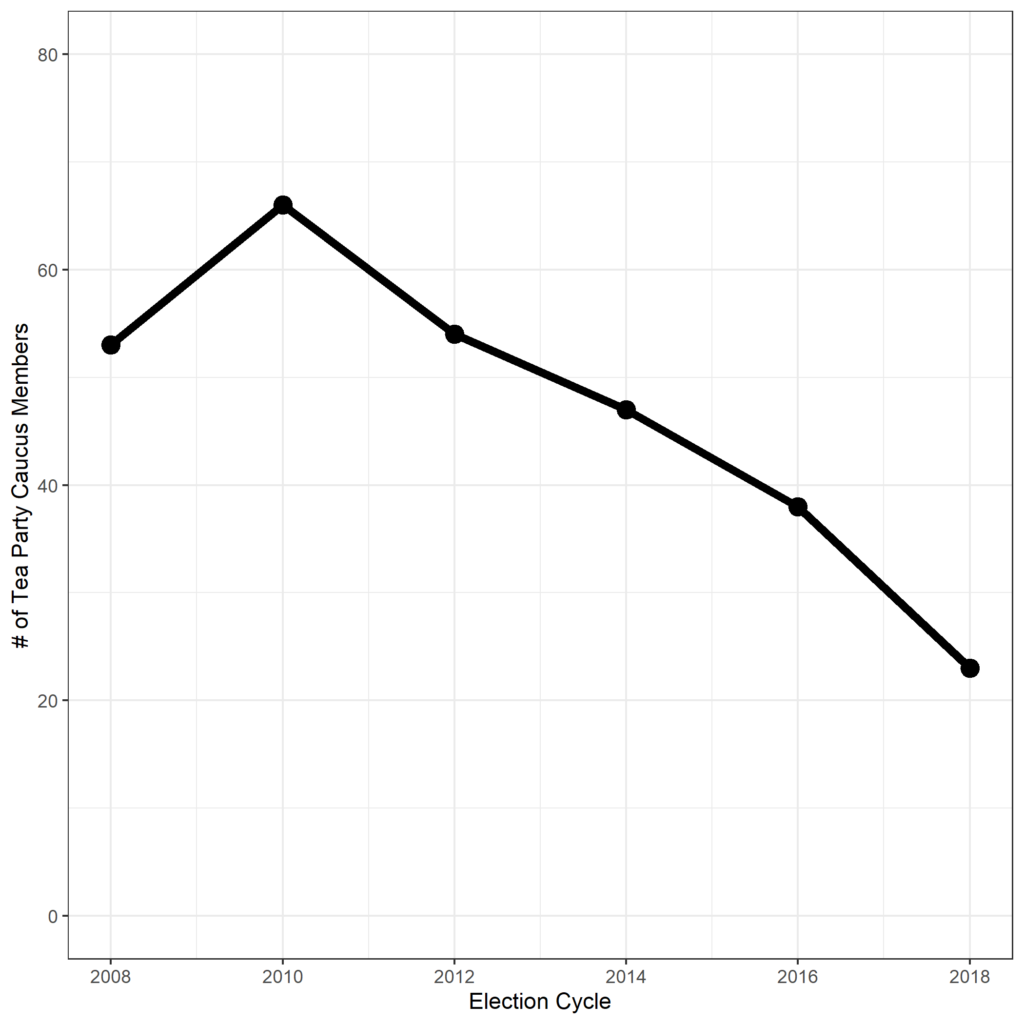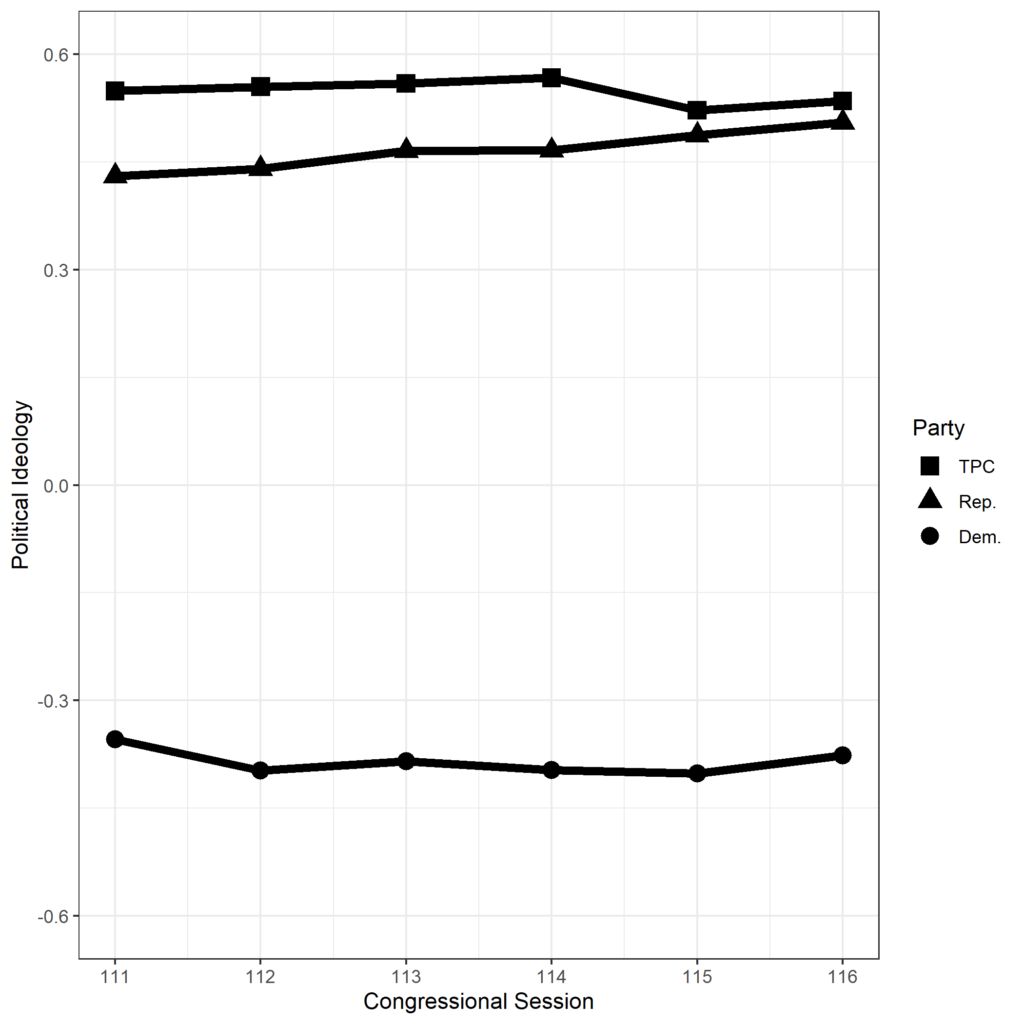The Tea Party insurgency profound influenced American political culture. One of the most immediate and visible impacts was the establishment of the Tea Party Caucus in the House of Representative. The Tea Party Caucus was founded by Michele Bachmann (R-MN) in 2010. At its peak, over 60 members of the House, all Republicans, were affiliated with the Tea Party Caucus. The image shows the number of members of the House affiliated with the Tea Party Caucus over time.

After peaking in 2010, membership in the Tea Party Caucus declined rapidly. Some politicians retired or left public life. Others became senators or governments. Mike Pence (R-IN) became Vice-President. The House Freedom Caucus quickly followed the Tea Party, and adopted a similarly hardline conservative stance. However, research suggests little continuity between the two causes.
A more latent consequence of the Tea Party was its influence on American political culture. Political leaders affiliated with the Tea Party were significantly more conservative that other Republicans. One way to look at political ideology is to use scores from the Dynamic Weighted NOMINAl Three-step Estimation approach, commonly called DW-NOMINATE. The graph below shows the DW-NOMINATE values for Tea Party Caucus members, Republicans, and Democrats over time.

Beyond the baseline differences in ideology, our analysis also shows that in communities where the Tea Party was most active, politicians increasingly moved to the political right. This rightward drift had a profound and durable impact on American political life.